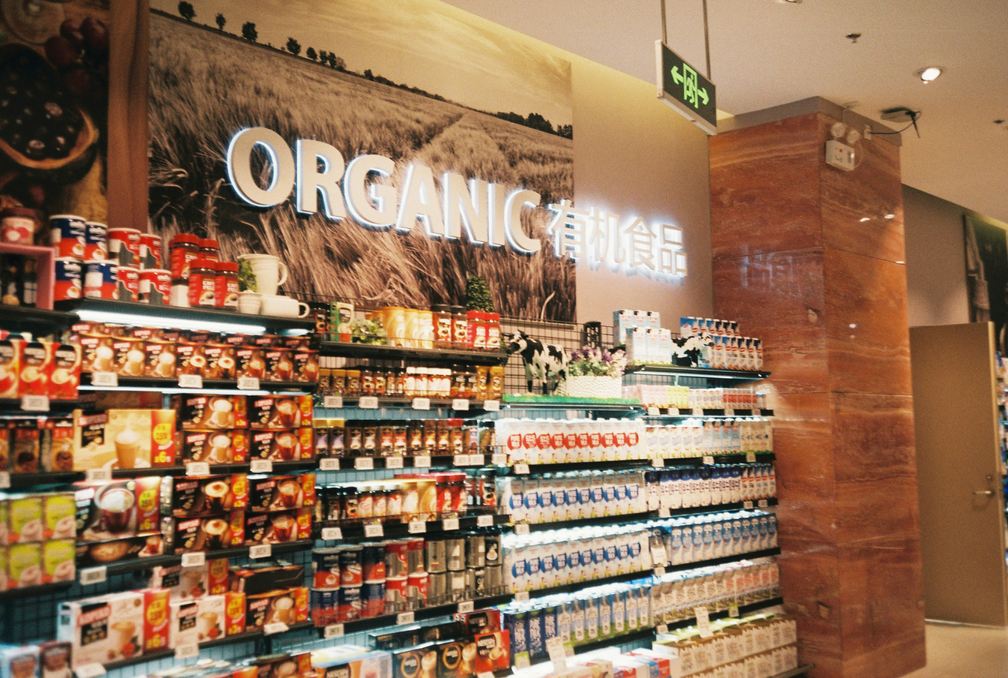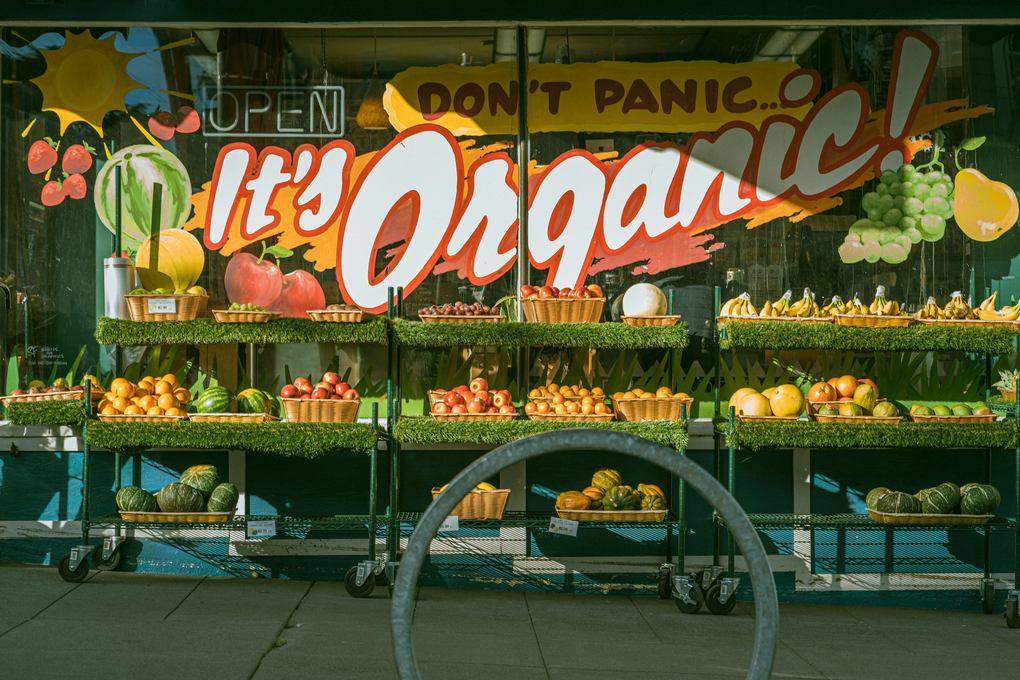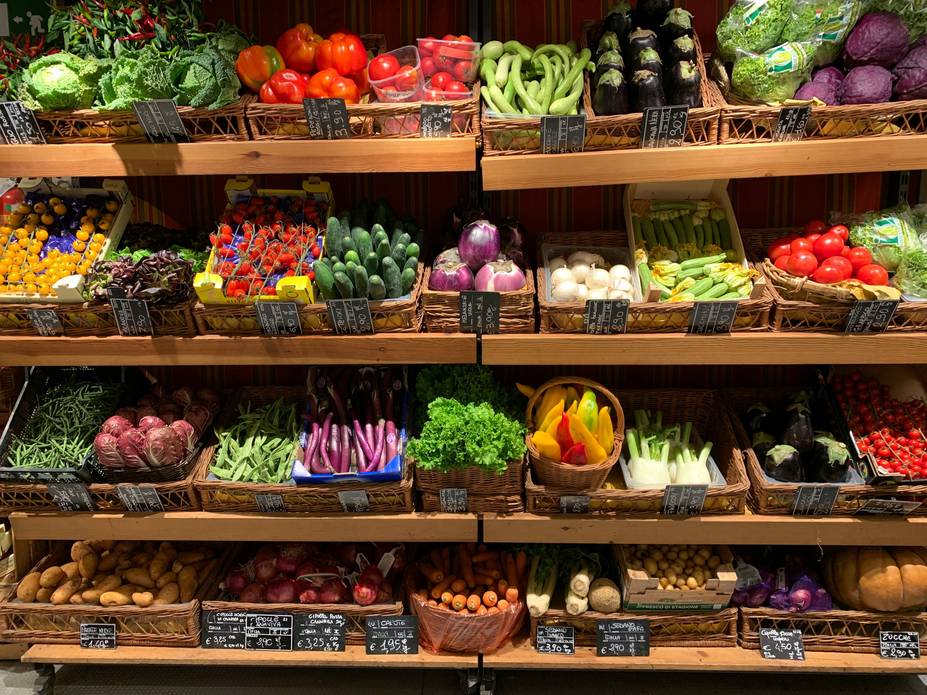Organic, sustainable, healthy,… These terms show up more and more when talking about workplace food choices. But what does it actually mean when a product carries an organic label? And why does it matter?
What is an “organic label”?
An organic label is an official certification. It’s not enough for a product to be described as “natural” or “pesticide-free”. It has to meet strict criteria, verified by independent authorities.
What does a product with the EU organic label guarantee?
– No use of GMOs
– No synthetic pesticides or fertilizers
– Environmentally responsible farming methods
– Strict controls at every stage: production, processing, transport and packaging
This applies to everything from an apple to a bag of granola or a dried fruit mix. The label ensures consistency throughout the supply chain.
The most common labels
– The EU organic logo (the green leaf) is mandatory for all certified organic products in the EU
– National versions like AB (France) or Bio Garantie (Belgium) also exist
– Some private labels exist as well, with varying levels of stringency
More about the official EU organic label: European Commission.
Why is it important to understand?
1. Because “organic” is more than just a word
Food marketing is full of buzzwords. “Healthy”, “natural”, “authentic”… All appealing, but often legally meaningless. An organic label, on the other hand, is clearly defined, regulated, and audited.
Understanding what the label truly represents helps you make informed choices, especially when buying for others (teams, staff, colleagues).
2. Because the label doesn’t cover everything
Let’s be clear: an organic label doesn’t make a product automatically healthy. Organic cookies can still be packed with sugar or salt.
What an organic label doesn’t guarantee:
– Nutritional value or Nutri-Score
– Level of food processing
– Local origin or fair social practices
Choose wisely: read labels, favor whole foods, etc.
Organic labels in the workplace: why does it matter?
Workplace food is no longer just vending machines and instant coffee. It’s becoming a lever for wellbeing, engagement, and CSR strategies.
Organic, health, and workplace well-being
Offering certified organic snacks:
– Means fewer chemical residues
– Encourages more plant-based eating habits
– Meets growing employee expectations around health
When it comes to snacks, products like dried fruits and cereals are especially well represented in the organic market. And they’re easy to eat at the office!
The same goes for drinks: healthy sodas, fermented beverages (like kombucha or kefir), and unsweetened herbal infusions are increasingly part of workplace selections.
It fits easily into a broader Quality of Work Life (QWL) approach, alongside actions on ergonomics, stress management, and movement.
Organic choices send a message
Offering organic snacks at work sends a subtle message: we care. Not mandatory, but meaningful. These small choices build trust and consistency between values and daily experience.
A company that promotes social responsibility but offers ultra-processed snacks creates a disconnect. On the other hand, providing organic snacks and drinks, without imposing them, can strengthen a sense of care. It’s a small but meaningful lever to support a company culture that’s consistent, detail-oriented, and aligned with its internal values and physical environment.
Organic and environmental responsibility
Organic agriculture helps:
– Reduce soil and water pollution
– Preserve biodiversity
– Lower energy consumption
Combining organic options and bulk offers encourages thoughtful consumption, and reduces environmental impact.
Logistics: the hidden part of the label
When we talk about organic certification, we usually think of farming or food processing. But the logistics chain also plays a key role.
To remain certified up to the point of consumption, all intermediaries must follow strict rules: separate storage, dedicated container cleaning, and full traceability.
Organic, local, fair trade: do you have to choose?
These are complementary but separate ideas. A product can be:
– Organic but imported
– Local but conventionally farmed
– Fair trade but not certified organic
What to keep in mind
An organic label is reliable and regulated.
It doesn’t guarantee taste, locality, or nutrition.
But it’s a useful step toward transparency and sustainability.
At BulkBar, we choose certified organic products for our workplace snack solutions. Not as a trend, but because it aligns with modern workspaces that value both well-being and environmental impact.
Published on 28/10/2025












